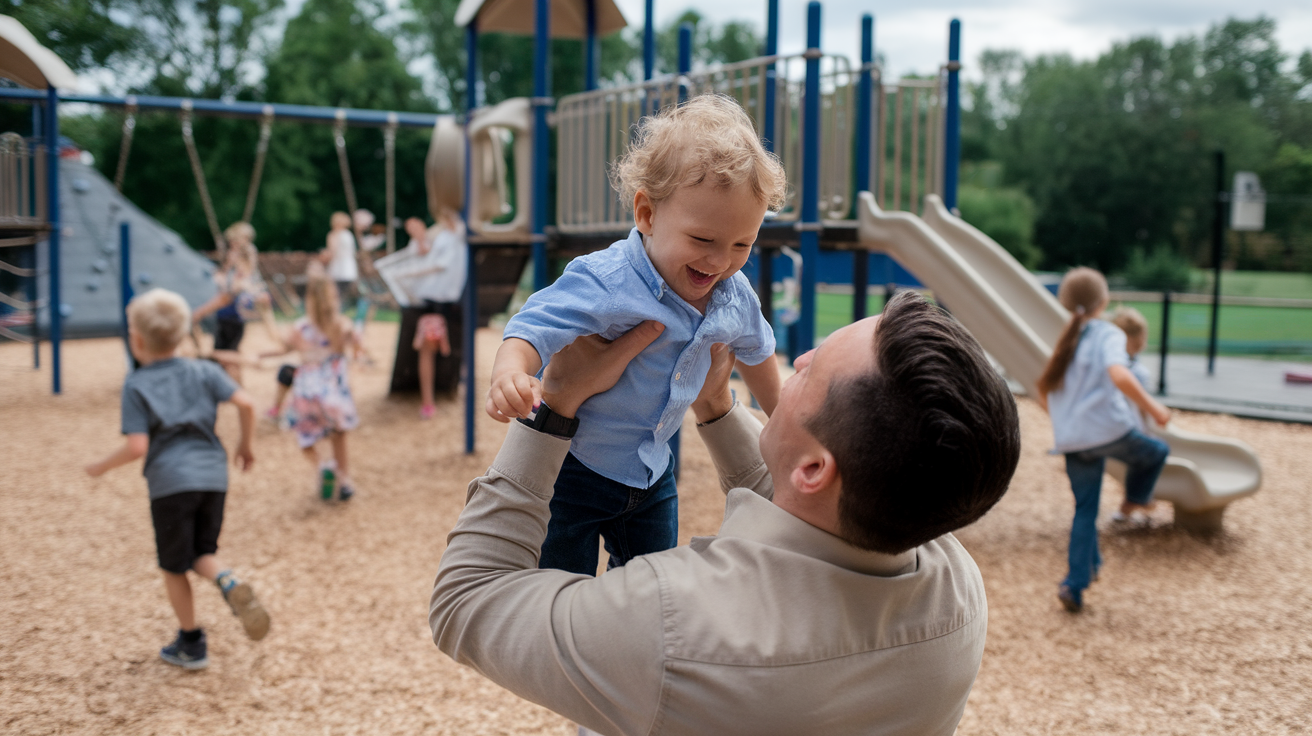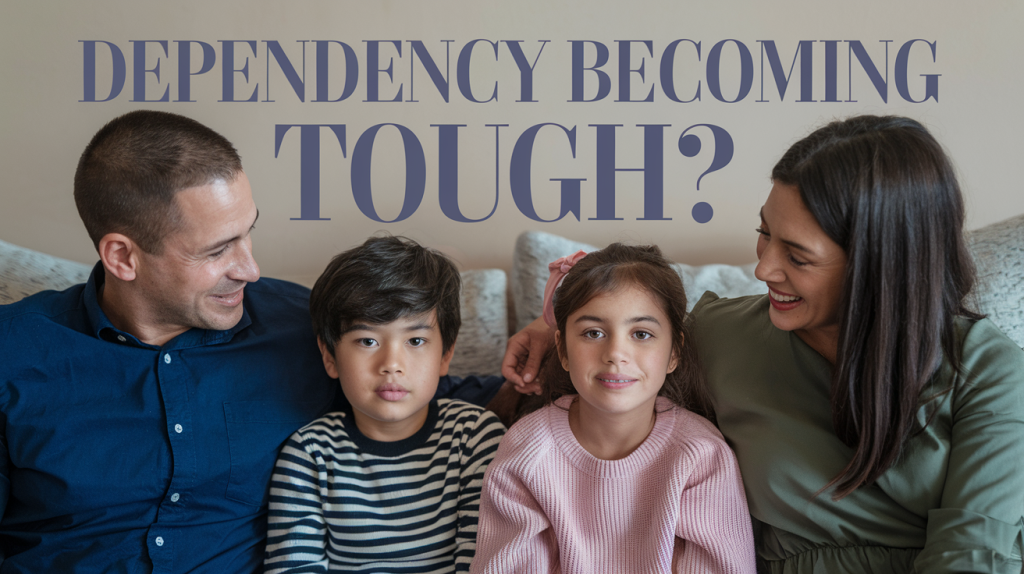What happens when one family member’s well-being becomes completely tied to another’s choices?
Codependency creates a pattern where family roles become blurred, and healthy boundaries fade away. Parents might shield their children from the natural results of poor choices, while children take on adult responsibilities too early.
This pattern affects how family members relate to each other and shapes their future relationships.
The effects run deep, changing how people view themselves and others. These changes can pass from one generation to the next, setting up cycles that are hard to break.
This guide looks at the lasting impact of codependency on families and shows ways to build healthier connections with family.
What is a Codependency

Codependency in family relationships happens when family members put others’ needs ahead of their own to an unhealthy degree. These bonds form when family members stop taking care of themselves and focus too much on others.
Example:
- Think of a mother who spends all her time trying to fix her adult son’s problems or a child who feels they must take care of their parent’s feelings.
- A father might clean up after his teenage daughter’s mistakes instead of letting her learn from them.
- A wife might always try to please her husband while ignoring her own needs.
In codependent families, one person always gives while another always takes. Family members feel they must be responsible for each other’s happiness. Many find it hard to refuse requests, even when they should. Some make excuses for bad behavior, while others stay in poor situations because they fear being alone or rejected.
The key problem in codependent families is that no one has firm limits. Everyone gets mixed up in everyone else’s business, problems, and feelings. This creates stress and stops people from growing into healthy, independent adults.
Effects of Codependency on Family Relationships

The effects of codependency on families run deeper than most people realize. When family bonds become tangled with control and excessive helping, it changes how everyone acts, thinks, and feels.
These changes touch every part of family life and relationships. Let us examine the effects of codependency on families in the below points.
Learning Through Observation
The impact of codependency spreads through family relationships like ripples in water. Children in codependent homes often learn to ignore their own needs. They watch their parents’ patterns and copy these behaviors as they grow up.
Parents might show love through control or constant helping, teaching children that these are normal ways to care for others. When these children become adults, they often repeat the same patterns in their own families.
Emotional Sacrifice and Guilt
Family members in codependent relationships often feel guilty when they try to care for themselves. A son might feel bad about going to college because his mother says she’ll be lonely. A daughter might give up her career plans to stay close to her worried father.
These choices can lead to hidden anger and resentment that damage family bonds. The guilt becomes a tool that keeps everyone stuck in unhealthy patterns.
Communication Breakdown
Codependency changes how people talk to each other in families. Instead of open, honest chats, family members might use guilt or manipulation to get what they want. Someone might say, “If you loved me, you would do this.”
These words hurt the trust between family members. Over time, people learn to hide their true thoughts and feelings to avoid conflict or keep others happy.
Daily Life Changes
The effects show up in everyday situations, too. Family members might avoid sharing good news because they worry about making others feel bad. They might skip personal events or give up hobbies to stay available for others.
Simple decisions become complex when everyone feels responsible for everyone else’s feelings. This creates a home where people walk on eggshells instead of being themselves.
Future Relationship Issues
These patterns can be passed down through generations. Children who grow up in codependent homes might have trouble forming healthy relationships as adults. They might seek out partners who need fixing or saving, just like they saw at home.
Some become people-pleasers who can’t say no, while others might push people away to avoid getting too close.
Impact on Personal Growth
Family members in codependent relationships often stop growing as individuals. They might give up dreams, avoid new experiences, or stay in bad situations because change feels too risky.
The focus stays on keeping others happy instead of building a full, healthy life. This stunts personal growth and can lead to feelings of emptiness or loss of identity.
Signs of Codependent Family

Looking for signs of codependency in your family? These patterns might seem normal at first because they’ve been part of family life for so long. But knowing these signs helps you spot unhealthy patterns that need change.
Here is the information formatted into a table for better readability:
| Pattern | Description |
|---|---|
| Excessive Caretaking |
|
| Poor Boundaries |
|
| Emotional Control |
|
| Approval Seeking |
|
| Fear of Rejection |
|
Impact of Codependency on Parent-Child Relationships
A codependent parent-child relationship muddles the natural roles in a family. Parents might use their children for comfort, while children learn to put their parents’ needs first.
- Control Masked as Protection: Parents with codependent traits shield their children from every small problem. They check grades daily and step in to solve all conflicts. This constant watching stops children from learning to handle normal problems.
- Role Switching: Young children often act like small adults. They comfort sad parents and try to fix family issues. This early push into being a “little parent” takes away their childhood.
- EmotionalDistance: When parents lean too much on their children for support, it creates odd gaps in closeness. Children hide their real feelings to keep their parents happy.
- GrowingUpTooFast: Children with codependent parents often miss key growing-up steps. They skip friend time to stay home with worried parents, while some handle adult tasks when they should focus on being kids.
- FutureRelationshipProblems: These childhood patterns follow children into adult life. They might pick partners who need saving or avoid close relationships altogether.
Strategies for Overcoming Codependency in Families
| Strategy | Description |
|---|---|
| Open Family Talks |
|
| Set Family Rules |
|
| Learn Together |
|
| Support Changes |
|
| Get Outside Help |
|
| Practice New Skills |
|
Conclusion
Breaking free from codependency in families isn’t simple, but it brings positive changes worth working for. Everyone benefits when family members learn to set healthy limits, care for themselves, and respect each other’s space.
The patterns we discussed – from excessive caretaking to fear of rejection – can change with time and effort. Each small boundary you set and each time you practice self-care builds a stronger foundation.
Many families have already walked this path and found their way to healthier relationships. They’ve shown that change is possible with patience and commitment.
Start today – your family can create new patterns of love and support while keeping healthy boundaries. Your first step towards change matters more than you know.
Frequently Asked Questions
How Codependency Affects Family Relationships Over Time?
Codependency creates unhealthy emotional reliance, leading to resentment, lack of boundaries, and difficulty forming independent relationships.
Can Codependency Impact Mental Health?
Yes, codependency increases anxiety, depression, and low self-esteem as individuals struggle with people-pleasing and difficulty expressing their needs.
How Does Codependency Affect Children in the Family?
Children may develop poor self-worth, struggle with independence, and feel overly responsible for others’ emotions, leading to future relationship challenges.
Can Codependency Cause Financial Problems in Families?
Excessive caretaking and enabling behaviors can lead to financial strain when one person over-supports others while neglecting their financial stability.
How Can Families Break Free from Codependency?
Setting boundaries, seeking therapy, fostering open communication, and encouraging emotional independence help families create healthier relationships.








